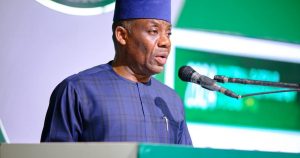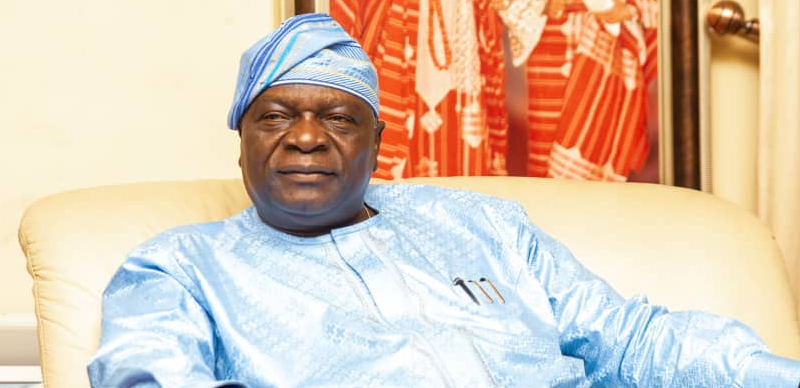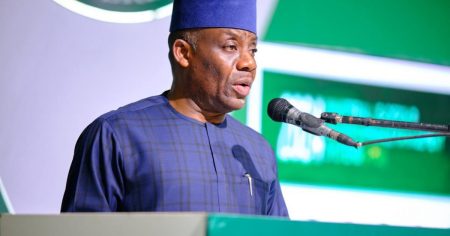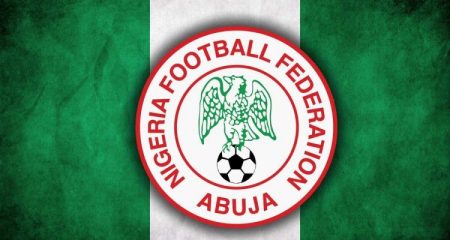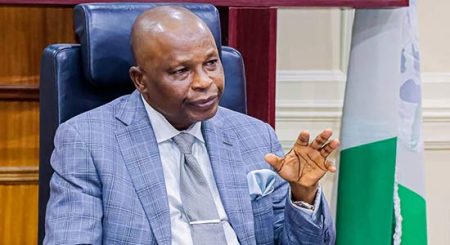The political landscape of Osun State, Nigeria, is witnessing a power struggle, with the ruling All Progressives Congress (APC) attempting to sway Governor Ademola Adeleke to defect from the Peoples Democratic Party (PDP). This revelation comes from Prince Olagunsoye Oyinlola, a prominent PDP figure and former governor of Osun State. He describes the pressure on Governor Adeleke as immense, a common tactic employed by the ruling party to bolster its ranks and weaken the opposition. This pressure, Oyinlola explains, often results in elected officials switching allegiances, succumbing to the influence and potential benefits offered by the dominant party. However, Adeleke, according to Oyinlola, remains steadfast in his commitment to the PDP, recognizing the potential political suicide that a defection would represent.
The APC’s standing in Osun State has reportedly declined, making a move to the party a risky proposition for any politician seeking to maintain popular support. Oyinlola emphasizes the governor’s awareness of this precarious situation, stating that joining the APC would damage Adeleke’s credibility and future political prospects. The people of Osun, Oyinlola asserts, are disenchanted with the APC’s governance, and aligning with the party would be a betrayal of the electorate’s trust. This unwavering resistance from Governor Adeleke underscores the significant political calculations at play, demonstrating his understanding of the public sentiment and the potential repercussions of changing sides. This dynamic creates a tense standoff between the ruling party’s ambitions and the governor’s resolve.
Oyinlola’s perspective provides a glimpse into the high-stakes political maneuvering occurring behind the scenes. He confirms the ongoing pressure on Governor Adeleke, emphasizing the delicate balancing act the governor must maintain. While acknowledging the allure and potential benefits of aligning with the ruling party, Oyinlola highlights the detrimental impact such a move would have on Adeleke’s political career. The people of Osun State, according to Oyinlola, would not condone such a shift in allegiance, leaving the governor politically isolated and vulnerable. This assessment reveals the importance of public perception and the potential backlash against politicians perceived as opportunistic or driven by personal gain rather than the interests of their constituents.
Beyond Adeleke’s situation, Oyinlola’s own stance within the PDP further exemplifies the complex political dynamics at play. He describes himself as a “battle-tested general,” unyielding in his commitment to the PDP despite the pressures and inducements that may be directed his way. This steadfastness, he attributes to his extensive experience in Nigerian politics, having served as a military administrator, civilian governor, and national secretary of the PDP. This background, Oyinlola argues, has equipped him with the resilience and political acumen to navigate the turbulent waters of Nigerian politics and resist any attempts to sway his allegiance. His confidence underscores the significance of experience and a deep understanding of the political landscape in navigating such pressures.
The pressure exerted on elected officials to defect, as described by Oyinlola, reveals a concerning trend in Nigerian politics. This practice underscores the vulnerability of democratic processes to manipulation and the potential for political instability. The allure of power and resources can often override principles and commitments, leading to a fluid and unpredictable political environment. This dynamic also highlights the importance of strong, independent institutions and a vigilant citizenry to ensure accountability and prevent the erosion of democratic principles. The struggle for political control in Osun State serves as a microcosm of larger challenges facing Nigeria’s democratic development.
In conclusion, the political situation in Osun State presents a complex interplay of ambition, pressure, and resistance. Governor Adeleke faces the daunting task of balancing the interests of his constituents with the overtures of the ruling party. His decision carries significant weight, impacting not only his own political future but also the broader political landscape of the state. Oyinlola’s insights shed light on the behind-the-scenes maneuvering and the difficult choices facing politicians in Nigeria’s dynamic political arena. This ongoing struggle for political control underscores the challenges and complexities inherent in Nigeria’s democratic evolution, where loyalty, power, and public perception constantly intersect and collide.


